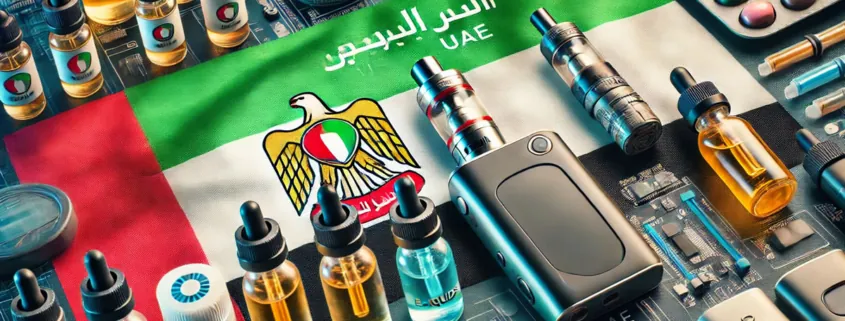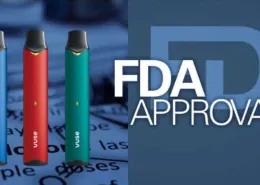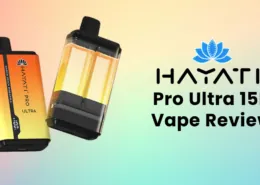UAE Vape Products Fees, Taxes, and Regulations
The United Arab Emirates (UAE) has witnessed a significant transformation in its approach to vaping and e-cigarette products in recent years. Once prohibited, these products are now legally available for purchase, albeit subject to stringent regulations and taxation. This comprehensive guide delves into the various fees, taxes, and regulations that shape the vaping industry in the UAE, providing valuable insights for both individuals and businesses operating within this dynamic market.
Vape Regulatory Framework in UAE
In April 2019, the UAE made a landmark decision to reverse its previous ban on the sale of e-cigarettes, vaping devices, and associated products. This strategic move aimed to reduce smoking rates in the country, with the Ministry of Health and Prevention (MoHAP) recognizing these products as potentially less harmful alternatives to traditional tobacco products.
However, the legalization of vape products came with a robust regulatory framework. All vape products sold in the UAE must now comply with the Ministry of Industry & Advanced Technology (MoIAT) standards, which were previously regulated by the Emirates Authority for Standardisation and Metrology (ESMA). These standards encompass various aspects, from the ingredients used in e-liquids to the safety features of vaping devices.
The legal landscape surrounding vape products in the UAE includes several critical regulations that businesses and individuals must adhere to. These regulations cover product quality, labeling requirements, and restrictions on advertising and promotional activities. By implementing these regulations, the UAE aims to foster a responsible and ethical vaping industry that prioritizes consumer safety and well-being.
The Role of Government Agencies
The regulation of vape products in the UAE is a collaborative effort involving various government agencies responsible for ensuring compliance and consumer safety. These agencies include:
- Ministry of Industry & Advanced Technology (MoIAT): MoIAT oversees the implementation and enforcement of quality standards for vape products, monitoring their safety and conformity to regulations.
- UAE Ministry of Health and Prevention (MOHAP): MOHAP plays a crucial role in setting health regulations, promoting public awareness campaigns, and enforcing adherence to health and safety guidelines.
- Federal Tax Authority (FTA): The FTA is responsible for the implementation and collection of taxes, including the Excise Tax on vape products. Their role includes ensuring businesses accurately calculate and report taxes associated with their vape products.
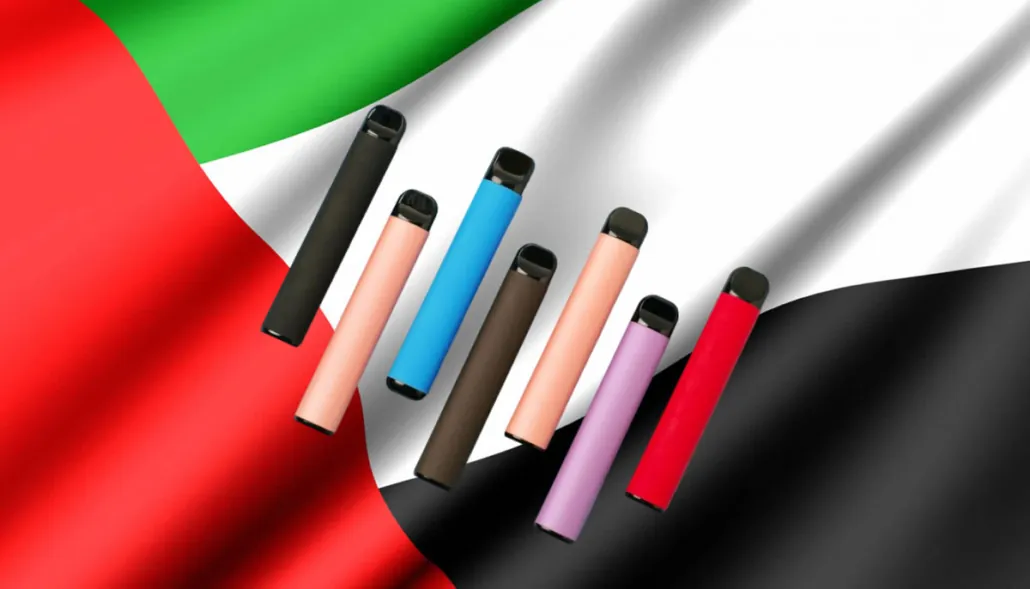
Cost of Registering Vape Products in UAE
The registration process for vape products in the UAE involves specific costs that businesses need to be aware of. The fees associated with registration depend on several factors, including the type and quantity of products being registered.
For e-liquids, the registration process requires businesses to provide detailed information about the product’s composition, including the concentration of nicotine and other ingredients. The fee is calculated based on the number of proposed e-liquid flavors being registered. Additionally, businesses must consider the meticulous testing procedures conducted to ensure the safety and quality of vape products. These tests involve rigorous assessments of the e-liquids’ chemical composition, stability, and packaging integrity, with the associated costs being an essential part of the overall registration process.
Similarly, the registration process for vape devices entails providing specifications and details about the product’s technical features. The fee is determined based on factors like the device’s complexity and functionality.
Important Update: Changes in the Registration Process
Recent changes have been implemented in the registration process for vape products in the UAE. Previously, multiple flavors could be covered under a single application. However, under the new system, each SKU with a barcode must have its own application. For example, if a business wishes to register both a multipack and a single pack of the same flavor and nicotine strength, they’ll need to submit two separate applications.
To register a product for sale in the UAE, businesses must pay two distinct fees:
- Certificate issuance fee: This fee, payable to the MoIAT, has been reduced from AED 5000 to AED 670 per application.
- Document review fee: Payable to the notified body, this fee remains constant at AED 800 per application.
The updated fees for various product categories are as follows:
| Product | Old Fee | New Fee |
|---|---|---|
| Label | AED 5000 | AED 670 |
| Product – Liquid | AED 5000 | AED 670 |
| Product – Device | AED 5000 | AED 670 |
| RoHS | AED 1000 | AED 1000 |

ECIGATOR
Ecigator is one of the well-known vape brands spun off from FM Technology Co., Ltd, it’s an ISO-certified disposable vape manufacturer for OEMs, ODMs, and OBM since 2010. The founder team comes from top firms with more than 10 years of experience in the vaping industry and has devoted thousands of hours to providing users with a better and better experience.
Fees and Taxes of Vape Products in UAE
Import Fees
Importing vape products into the UAE comes with its own set of fees. Importers are required to pay a registration fee of AED 10,000 for each brand of e-cigarette or vaping device they wish to import. Additionally, there is a fee of AED 500 for each variant of the product within the brand. It’s important to note that these fees are non-refundable, even if the product fails to meet MoIAT standards and is subsequently rejected. This underscores the importance of ensuring that all products comply with these standards before attempting to import them into the UAE.
Excise Tax
In addition to import fees, vape products in the UAE are also subject to an excise tax. Introduced in December 2019, this tax is part of the UAE’s strategy to reduce the consumption of harmful products. The Excise Duty rates in the UAE for tobacco products, e-cigarettes, and liquids are as follows:
- 100% on tobacco products
- 100% on electronic smoking devices
- 100% on liquids used in such devices and tools
- 50% on any product with added sugar or other sweeteners
As prices rise, businesses must carefully consider their pricing strategies to remain competitive while also accounting for the additional costs imposed by regulations. It’s important to note that the Excise Tax is calculated based on the retail price of the product, rather than the cost price. This means that the actual amount of tax paid can vary significantly depending on the retailer’s pricing strategy.

Impacts on the Vape Market in UAE
Despite the strict regulations and high taxes, the vape market in the UAE has shown significant growth since the legalization of these products. According to a report by Research and Markets, the UAE vape market is expected to grow at a compound annual growth rate (CAGR) of 9.74% from 2021 to 2026. This growth is largely driven by the increasing popularity of vaping as a smoking cessation aid, with many smokers turning to vaping to help them quit.
However, the strict regulations and high taxes pose significant challenges for retailers and manufacturers. The cost of compliance with MoIAT standards, coupled with the hefty excise tax, can make it difficult for smaller retailers to compete. Furthermore, the high retail prices resulting from the excise tax can deter potential customers, particularly those who are new to vaping and may be hesitant to invest in a relatively expensive device.
Future Changes of Fees and Regulations in UAE
As the vaping industry continues to evolve and gain prominence in the UAE, it is expected that fees and regulations will undergo continuous refinements and updates. The government agencies responsible for regulating this sector maintain a proactive approach to address emerging challenges and align regulations with international standards.
Anticipated changes may include further refinement of quality standards, adjustments to taxation policies, and the introduction of new regulations to keep pace with industry advancements. Businesses and individuals must stay informed and remain adaptable to these changes to ensure ongoing compliance and long-term success in the UAE’s vaping industry.
Licensing and Permit Requirements
Obtaining the necessary licenses and permits is a crucial step for businesses entering the vaping industry in the UAE. Depending on the specific activities involved, businesses may require different types of licenses and permits.
Businesses engaged in importing vape products must obtain an import license, while those involved in distribution and retail require a trade license and a commercial permit. Each license or permit has its own set of requirements and fees, which businesses must carefully navigate.
The process of obtaining licenses and permits can be time-consuming and complex. Several documents and forms need to be submitted, including business plans, financial statements, and proof of compliance with health and safety regulations. Additionally, businesses may be required to undergo inspections and audits to ensure their operations meet the necessary standards.
When it comes to obtaining an import license for vape products, businesses need to be aware of the various regulations in place. The UAE has strict guidelines on the importation of vape products, including restrictions on certain ingredients and nicotine levels. Additionally, businesses must ensure that their products comply with labeling and packaging requirements set by the authorities.
Licensing Process Demystified: Step-by-Step Guide
- Identify the type(s) of license(s) or permit(s) needed for your specific business activities within the vaping industry.
- Understand the requirements, documentation, and fees associated with each license or permit.
- Prepare the necessary documentation, ensuring that all requirements are met.
- Apply along with the required fees, either online or through designated government offices.
- Wait for the processing and approval of the application, which may involve inspections and evaluations.
- Once approved, obtain the relevant licenses or permits, ensuring compliance with all associated regulations.
- Renew licenses or permits annually as required, paying attention to renewal deadlines and any updates or changes introduced by authorities.
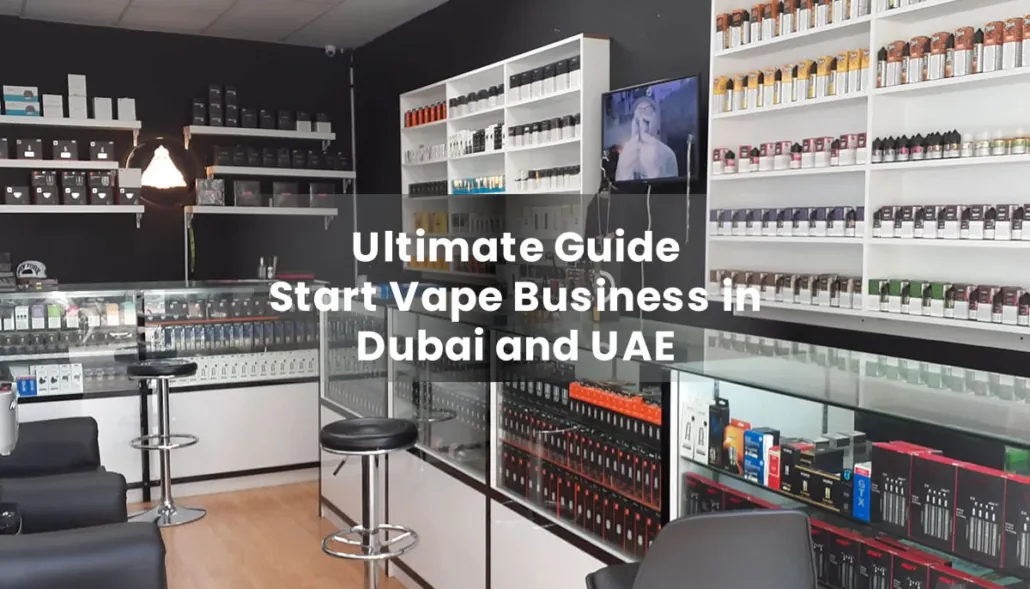
Conclusion: Navigating the Vape Industry in the UAE
Understanding the fees, taxes, and regulations associated with vape products in the UAE is essential for individuals and businesses seeking to enter or operate within this burgeoning industry. Compliance with regulations, including quality standards, labeling requirements, and taxation policies, is crucial to ensure consumer safety and maintain the integrity of the market.
By navigating the complex licensing process, businesses can obtain the necessary permits and licenses to operate legally in the UAE. These licenses and permits come with associated fees, which businesses should incorporate into their financial planning.
As the vaping industry progresses, businesses and individuals need to stay abreast of regulatory developments and anticipated changes. By doing so, they can adapt their strategies to remain compliant and proactively contribute to the growth and sustainability of the vaping industry in the UAE.
Frequently Asked Questions
What is the legal status of e-cigarettes and vape products in the UAE?
E-cigarettes and vape products are legal in the UAE since April 2019, but they are subject to strict regulations by the Ministry of Industry and Advanced Technology (MOIAT).
What are the requirements for selling e-cigarettes and vape products in the UAE?
To sell e-cigarettes and vape products in the UAE, one must obtain a commercial trading license from the Department of Economic Development (DED) or the relevant free zone authority, and a certificate of conformity from MoIAT. The products must also comply with the mandatory standard No. UAE.S 5030:2018, which specifies the safety, quality, and labeling requirements for e-cigarettes and related products.
What are the penalties for violating the regulations on e-cigarettes and vape products in the UAE?
Violating the regulations on e-cigarettes and vape products in the UAE can result in the seizure of the products, fines, and legal actions – Federal Law No. (15) of 2009 on Tobacco Control prohibits the sale, distribution, and advertising of any tobacco products that do not meet the standards and specifications set by MoIAT.
- Spain Plans to Ban Smoking and Vaping on All Terraces by 2027 - August 7, 2025
- Maldives Issues MVR 127,000 in Vape-Related Fines in July - August 7, 2025
- Alabama Lawmaker Proposes Ban on Vaping in Public Places - August 7, 2025

